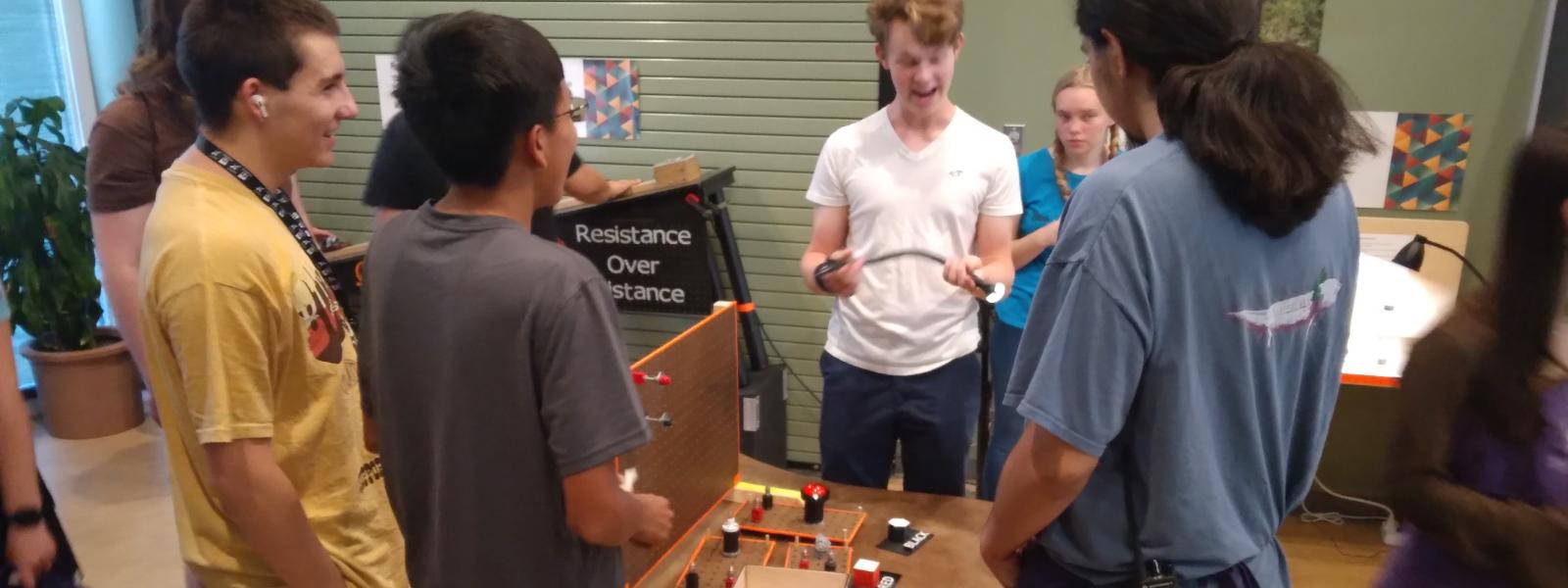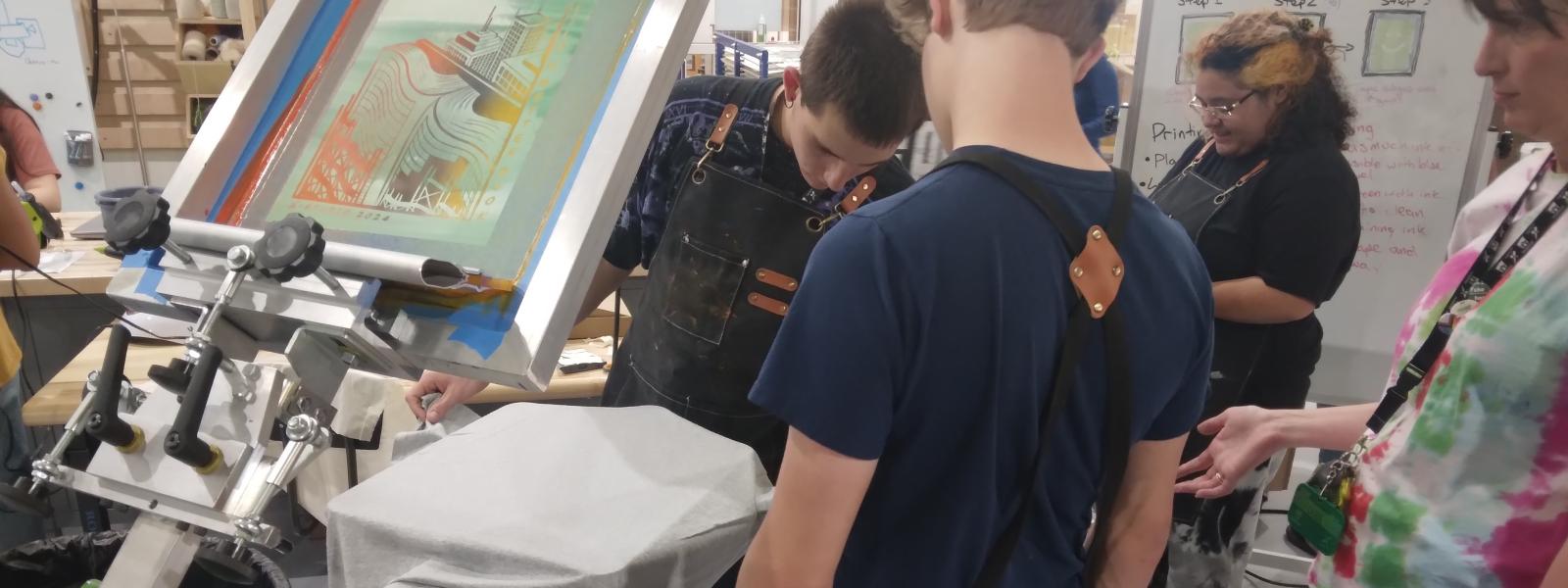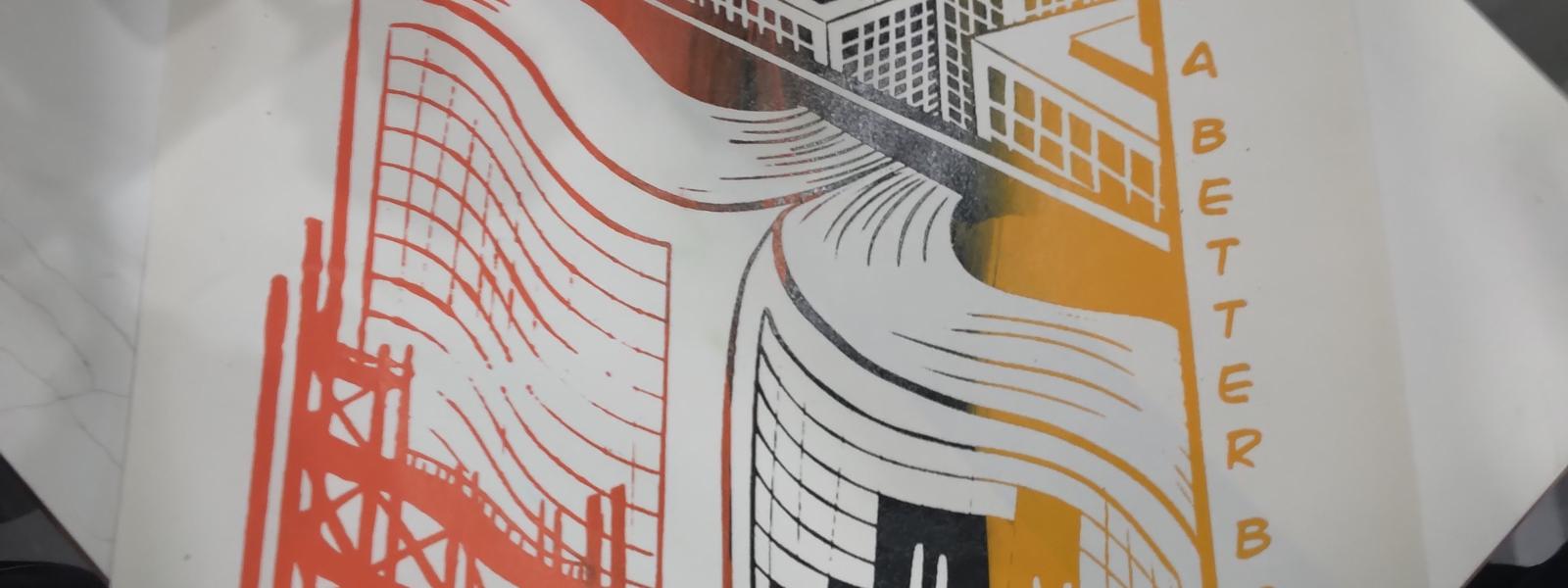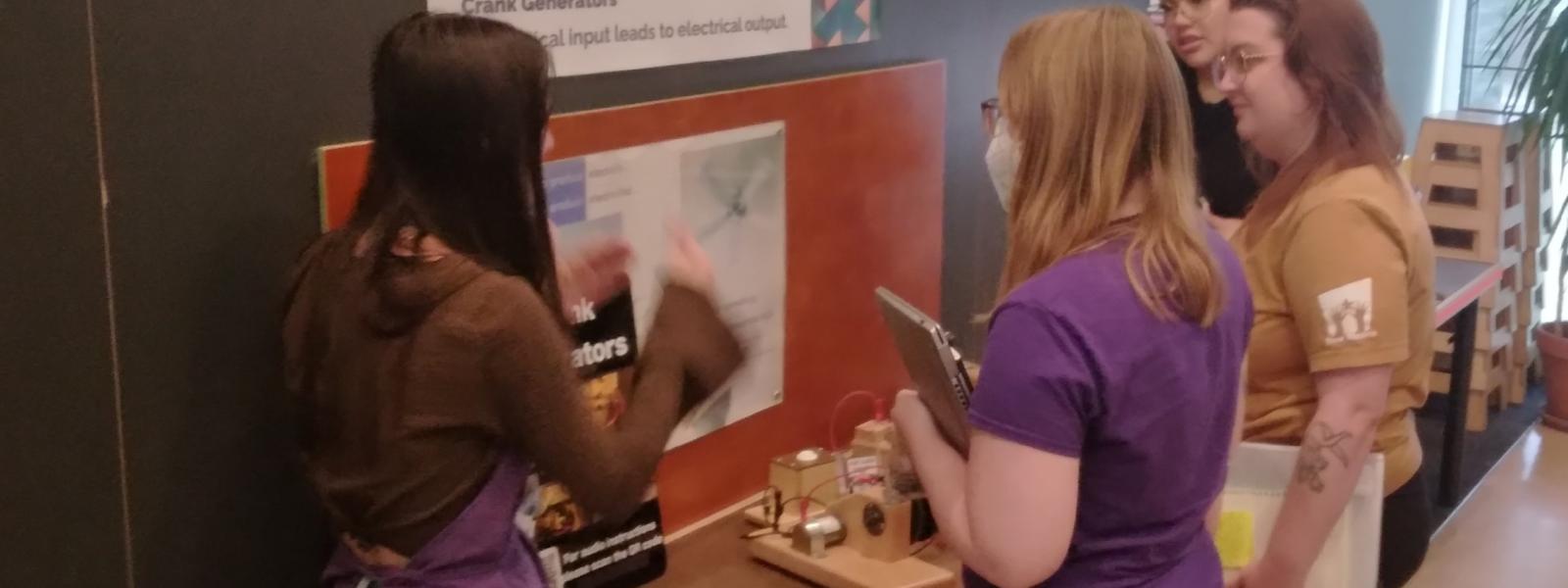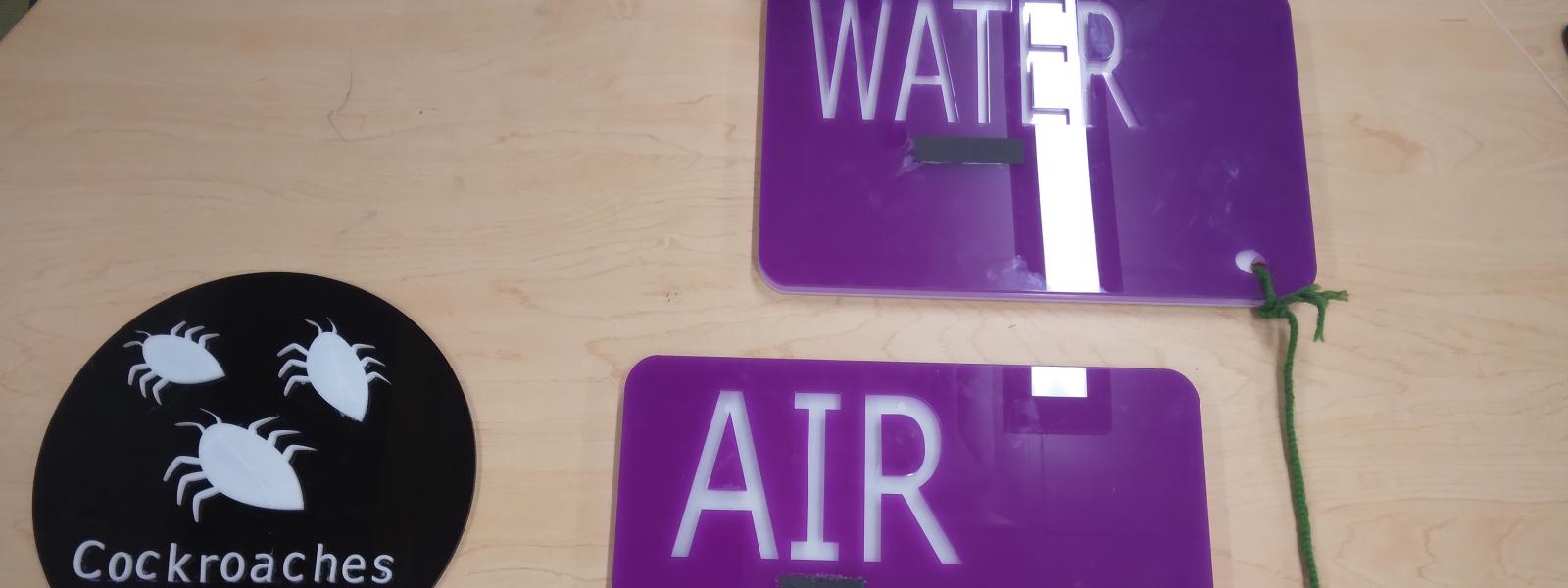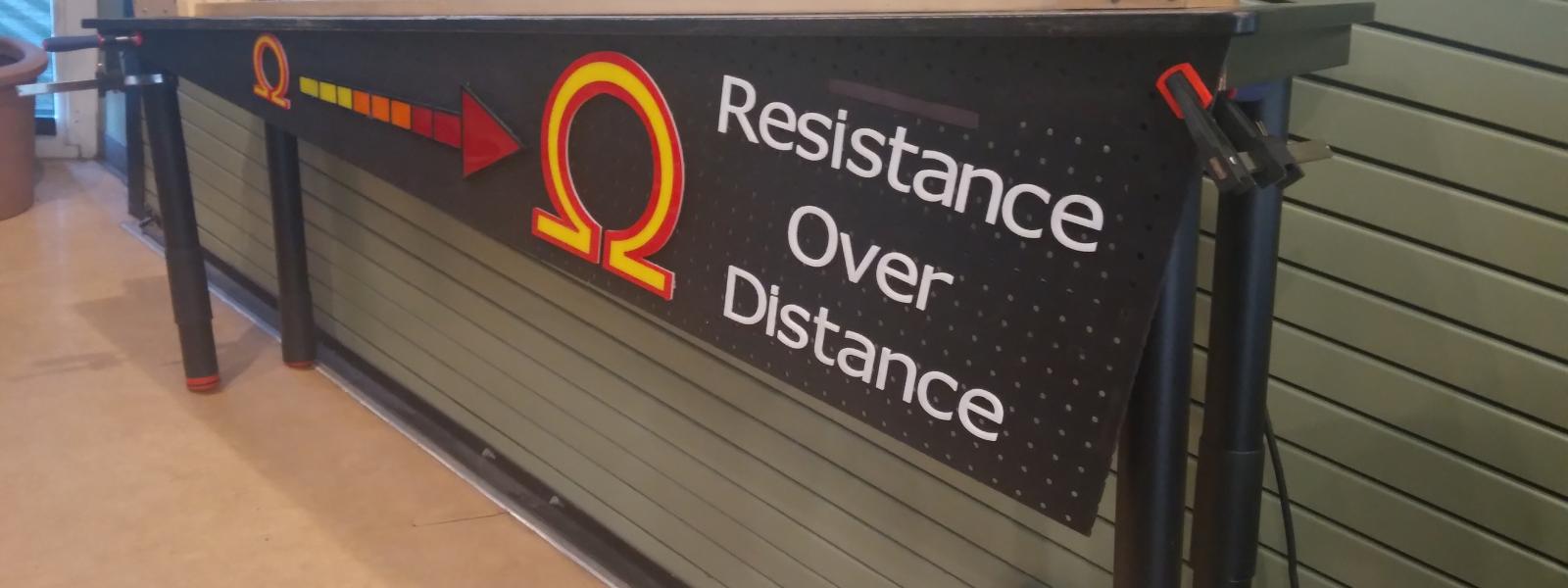New Mexico - Explora
Overview
The 2024 and 2025 Build a Better Book Teen Internship Program at Explora engaged Albuquerque area teens in helping to expand the accessibility of its exhibit spaces. Teen Interns worked with Explora's exhibits team and utilized Explora's teen makerspace, XStudio, to fabricate new exhibit components to make the science center a more inclusive and accessible space for all visitors.
Program Structure
The 4-week BBB Teen Internship at Explora was designed to provide interns with an authentic engineering design experience in a workplace setting. Participating interns worked collaboratively in project teams to design and produce accessible exhibit components for the science center. Through the internship, students developed an understanding of:
- Universal Design principles and empathy-driven design
- Accessibility tools and designing for disabilities
- Tactile and multi-modal learning styles
- Maker Technologies, such as 3D modeling and printing, computer programming, electronics, and laser cutters
- Characteristics of blindness, vision impairments, and other disabilities
- 21st century workplace skills
Year 1 - Summer 2024
Explora hosted its Engineering and Design Teen Summer Internship in summer 2024. Interns in the four-week program completed 30-35 hours per week, for a total of ~120 hours. Students designed and built tactile and accessible materials for the Science Center's blind and low vision guests.
Projects included:
- Resistance Over Distance
- Tactile Wires / Alligator Clips
- Electricity Sticks
- Brille Labels / App Lab Sign
Year 2 - Summer 2025
Explora hosted an additional Engineering and Design Teen Summer Internship in summer 2025. Interns in the four-week program completed 15-20 hours per week. Students designed and built tactile and accessible materials for the Science Center's blind and low vision guests.
Projects included:
- Tactile Rockets
- Tactile Mazes & Puzzles
- Tactile Maps
- Circuits


